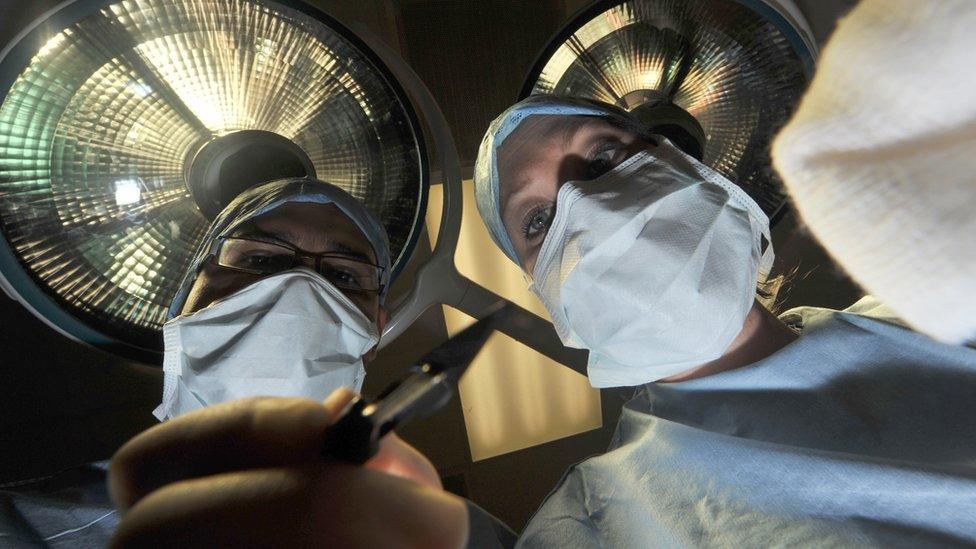EU healthcare scheme 'doesn't extend to diagnosis'
- Published

A judge has ruled that an EU healthcare scheme does not extend to covering a patient's diagnosis.
The ruling came in a case brought by a woman who spent more than four years on a hospital waiting list.
Eileen Wilson was referred by her GP to see a neurologist in June 2017 but a first appointment didn't take place until March 2022.
Ms Wilson told the South Eastern Health Trust she wished to apply for treatment under the S2 scheme in April 2021.
However, she was told it was unable to complete the application as she did not have a "confirmed neurological diagnosis".
NHS patients can receive planned medical treatment outside Northern Ireland under the S2 scheme, which is available under the terms of the Brexit trade deal - the Trade and Cooperation Agreement.
Ms Wilson, who wanted to use the S2 scheme to obtain a diagnosis, challenged the trust and the Department of Health's position that the scheme "may not be used for the purposes of diagnosis".
Her lawyer argued that a "proper interpretation" of the regulations supported the view that diagnostic services are a part of medical treatment.
Ms Wilson's barrister also argued this position was supported by the opinion of the Directorate-General of Health and Food Safety at the European Commission.
'Not intended to cover diagnosis'
However, a judge at the High Court in Belfast ruled that the Department of Health and the South Eastern Trust's interpretation of the regulations was "correct" and that the scheme "was not intended to cover diagnosis".
Dismissing the judicial review application, Mr Justice Colton said the S2 scheme is "expressly for the provision of treatment after a diagnosis".
Eileen Wilson's judicial review case was considered after an earlier legal challenge she brought relating to lengthy hospital waiting lists was also dismissed.
Ms Wilson's solicitor, Ciaran O'Hare, from McIvor Farrell Solicitors said his client is of the view the S2 scheme should be "fully utilised by all of those languishing on our appalling hospital waiting lists".
"My client is of the view that this scheme should be as accessible as possible and, in her case, where she wasn't able to obtain a diagnosis in respect of suspected multiple sclerosis within an acceptable time period, she is of the view that the scheme is too restrictive.
"It is my client's case that obtaining a diagnosis is an integral part of treatment and therefore same falls under the ambit of the scheme.
"We will closely examine today's judgment and consider any further appeal."
Related topics
- Published9 January 2023

- Published20 March 2021
